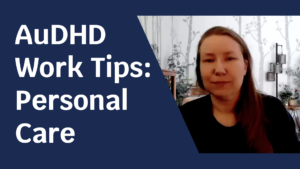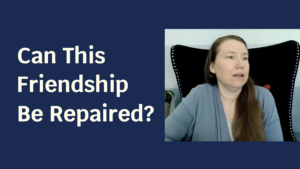
What do you want?
I’ve been thinking about how to figure out what you want. This is one of the most common dilemmas my clients face in making their lives better, and that I had to figure out for myself in my own post-autism-identification journey.
For many of us, it’s really hard to know what we want, or even acknowledge that we have wants (especially when wanting has been very thoroughly trained out of us), but I guarantee you that you have wants.
It’s really hard to know what we want, or even acknowledge that we have wants, but I guarantee you that you have wants.
All humans want. We come into this world wanting. We want milk, connection, to be cared for, and to be comforted.
At first, we have no compunction whatsoever in proclaiming our wants loudly and enthusiastically to the whole world (think of every crying baby), but then we get social training.
Some of us are trained hard and early. Some of us learn as small babies that there’s no point in crying because we won’t be answered, so we go quiet. Some learn that later, as children, teens, or adults, in unhealthy relationships.
Other people learn a different lesson. They learn that crying and screaming are highly effective methods of getting their wants met. At least, until someone in some relationship pushes back.
Most of us, to varying degrees, learn to suppress our wants in order to live around other people. Or, we become so convinced that our wants are inappropriate that we suppress them.
Or, we become so convinced that our wants are inappropriate that we suppress them.
On the flip side, some of us plague others with our wants: demanding, coercing, manipulating, creating situations in which others push aside their wants in exchange for the feeling of safety that comes with placating their survival instincts, which are on alert around us.
The healthy place is somewhere in between; where we are able to value our wants, express them, seek their fulfillment, talk about them with others, and be provided with reasonable support to pursue them. And in turn, we value, support, and give others the freedom to pursue their wants.
When there are conflicting wants, or ideas of how to fulfill them, then we can work together to find a solution that works for both of us, rather than settle for a win-lose or lose-lose trade off.
That’s not always easy, or obvious, and it usually takes learning healthy communication skills that we weren’t taught growing up (most of us were not taught particularly healthy communication patterns), but it is possible.
I’ll get more into how to do that later. For now, I just want to set up that it is possible. Because believing that your wants exist, matter, and can be met, is the first step in learning to figure out what you want.
That’s not always easy, or obvious, and it usually takes learning healthy communication skills that we weren’t taught growing up (most of us were not taught particularly healthy communication patterns), but it is possible.
Let me know if you want me to make a post on how to do that. It’s a big topic, so I’m a little overwhelmed at where to start, but that’s precisely because I have so much to say about it. For now, I just want to set up that it is possible. Because believing that your wants exist, matter, and can be met, is the first step in learning to figure out what you want.
Alright, here’s one little bit on that topic. I did make this other post on a common misconception around setting boundaries as a way to get our needs met. That’s here if you’re interested.
Okay, take care, and I wish you a neurowonderful day.




